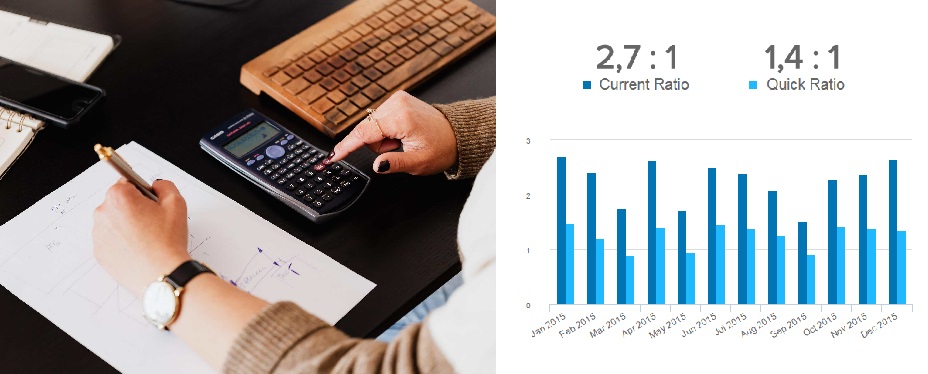This subject matter raises some questions which are answered in this post. It gives solutions to what is an accountant and Who is a Professional? Others are; Who is a professional Analytical Accountant? And What does an Analytical Accountant do for your business? That takes us to what is data analytics in accounting and what is accounting analytics. These are to equip you to run your business properly.
Furthermore, this post makes you understand how an analytical accountant can help you make sense of your business’s financial data and provide valuable insights and recommendations to help you make informed decisions and improve your bottom line. Find out Who is a Professional Analytical Accountant?
What is an accountant?
Table of Contents
An accountant is a professional who specializes in the management, analysis, and recording of financial transactions for individuals, organizations, or businesses. They use various accounting principles, practices, and procedures to ensure that financial records are accurate and up-to-date.
Accountants typically have a background in accounting, finance, or a related field, and may hold a professional designation such as Certified Public Accountant (CPA), Chartered Accountant (CA), or Certified Management Accountant (CMA). They may work in a variety of industries, including public accounting firms, corporate accounting departments, government agencies, or non-profit organizations. Find out Who is a Professional Analytical Accountant?
The responsibilities of an accountant may include preparing financial statements, tax returns, and other financial reports; analyzing financial data to identify trends and opportunities for improvement; managing budgets and cash flow; and ensuring compliance with financial regulations and standards. They may also provide financial advice to clients and assist with financial planning and decision-making.
Who is a Professional Analytical Accountant?
Then, who is a Professional?
A professional is someone who has specialized knowledge and skills in a particular field and provides services to clients or customers. They are typically required to meet certain educational or training requirements, and may also be subject to certification or licensing requirements.
Professionals can be found in a wide range of industries, including law, medicine, engineering, accounting, teaching, and many others. They may work for themselves as independent contractors, or be employed by companies, organizations, or government agencies. Find out Who is a Professional Analytical Accountant?
Professionalism is typically characterized by a commitment to high standards of quality, ethics, and conduct, and a dedication to ongoing learning and professional development. Professionals are often expected to adhere to codes of conduct or ethical guidelines that govern their behavior and interactions with clients or customers.
Who is a Professional Analytical Accountant?
Complefmc.com business tips:
Completefmc.com business tips help you run your business with valuable business information. A professional analytical accountant is an accountant who specializes in analyzing financial data to identify trends, opportunities, and risks for clients or their own organizations. This knowledge is good for modern CEOs. Find out Who is a Professional Analytical Accountant?
Furthermore, data analytics in accounting can provide valuable insights and help businesses make better decisions. They do this by leveraging the power of technology and statistical methods to analyze large volumes of financial data quickly and accurately. Here are why he is important for your business. This post is right on the points. So, read on again and again for a better understanding. Check out these related topics below.
- Who is a bookkeeper?
- SCUML Certification: This is how to go about it
- Accounting Cycles for business start-ups
- Jobs in Accounting profession
- Basic Accenting for your business
- GAAP for small business
- Statement of Affairs for CAC Annual Returns
Who is a professional Analytical Accountant?
A professional analytical accountant is an accountant who specializes in analyzing financial data. This is to identify trends, opportunities, and risks for clients or their own organizations. This type of accountant typically has strong analytical and problem-solving skills. It also has a solid understanding of accounting principles and practices. Find out Who is a Professional Analytical Accountant?
An analytical accountant may use various tools and techniques to analyze financial data, including statistical analysis, forecasting, and data visualization. They may also be involved in developing and implementing financial strategies based on their analysis. This, such as identifying areas for cost savings or revenue growth. Find out Who is a Professional Analytical Accountant?
In addition to their technical skills, a professional analytical accountants may also possess strong communication and interpersonal skills, as they may need to present their findings and recommendations to clients or stakeholders. They may work in a variety of industries, including finance, accounting, consulting, or corporate finance departments.
Who is a Professional Analytical Accountant?
In detail, what does an Analytical Accountant do for my business?
An analytical accountant can provide valuable insights and support to your business by performing various financial analysis tasks. Here are some examples of what an analytical accountant can do for your business:
- Financial statement analysis: An analytical accountant can review and analyze your financial statements, such as balance sheets and income statements, to identify trends, patterns, and areas of concern. This analysis can help you understand your business’s financial performance and make informed decisions about future investments, financing, or cost-cutting measures.
- Budgeting and forecasting: An analytical accountant can help you develop and manage your budgets, as well as create financial forecasts to help you plan for the future. This can involve analyzing historical financial data, market trends, and other factors that can impact your business’s financial performance. Find out Who is a Professional Analytical Accountant?
- Cost analysis: An analytical accountant can help you analyze and manage your costs, such as labor, materials, and overhead expenses. This can involve identifying areas of waste or inefficiency, as well as developing strategies to reduce costs without compromising quality or customer satisfaction.
- Performance measurement: An analytical accountant can help you track and measure your business’s financial performance, such as profitability, return on investment, and cash flow. This analysis can help you identify areas for improvement and make data-driven decisions to optimize your business’s performance. Find out Who is a Professional Analytical Accountant?
- Financial modeling: An analytical accountant can develop financial models to help you evaluate different scenarios and make informed decisions about future investments, projects, or strategic initiatives. This can involve creating cash flow projections, sensitivity analysis, and other types of financial models.
So, then what is data analytics in accounting?
Data analytics in accounting refers to the use of technology and statistical methods to analyze large volumes of financial data in order to identify trends, patterns, and insights that can help businesses make better decisions. With the rise of big data and advancements in technology, more and more accounting firms are incorporating data analytics into their services to provide deeper insights and greater value to their clients.
Data analytics in accounting can involve various techniques, such as data mining, regression analysis, machine learning, and predictive modeling. These techniques allow accountants to analyze large volumes of financial data quickly and accurately, identify patterns and trends that may not be apparent through manual analysis, and develop predictive models that can help businesses forecast future financial performance. Find out Who is a Professional Analytical Accountant?
Some examples of how data analytics can be used in accounting include:
- Fraud detection. Data analytics can be used to identify patterns and anomalies in financial data that may indicate fraudulent activity, such as discrepancies in revenue or expense patterns.
- Financial statement analysis. Data analytics can be used to analyze financial statements to identify trends, such as changes in revenue or profitability over time,. Then, to compare financial performance against industry benchmarks. Find out Who is a Professional Analytical Accountant?
- Budgeting and forecasting. Data analytics can be used to develop and manage budgets, as well as create financial forecasts based on historical financial data and other factors.
- Cost analysis. Data analytics can be used to analyze and manage costs, such as labor, materials, and overhead expenses, and to identify areas of waste or inefficiency.
Overall, data analytics in accounting can provide valuable insights and help businesses make better decisions by leveraging the power of technology and statistical methods to analyze large volumes of financial data quickly and accurately.

Who is a Professional Analytical Accountant?
And what is accounting analytics?
Accounting analytics is a subset of data analytics that focuses specifically on analyzing financial data. Then, on accounting information to provide insights and support for decision-making. Accounting analytics involves using technology, statistical methods, and accounting expertise to analyze financial data. By this, they identify patterns, trends, and opportunities that can help businesses improve their financial performance. Find out Who is a Professional Analytical Accountant?
Some common examples of accounting analytics include:
- Financial statement analysis. Accounting analytics can be used to analyze financial statements, such as balance sheets, income statements, and cash flow statements, to identify trends and patterns in financial performance.
- Ratio analysis: Accounting analytics can be used to calculate and analyze financial ratios, such as profitability ratios, liquidity ratios, and solvency ratios, to gain insight into a company’s financial health.
- Forecasting and budgeting. Accounting analytics can be used to develop financial forecasts and budgets based on historical financial data and other relevant factors.
- Cost analysis: Accounting analytics can be used to analyze and manage costs. These, such as labor, materials, and overhead expenses, and to identify areas of waste or inefficiency.
- Fraud detection. Accounting analytics can be used to identify patterns and anomalies in financial data that may indicate fraudulent activity, such as discrepancies in revenue or expense patterns.
Read More:
- SCUML Certification: This is how to go about it
- Accounting Cycles for business start-ups
- Jobs in the Accounting Profession
- Basic Accenting for your business
- Tax Clearance for Contract bidding
- GAAP for small business
- SCUML APPLICATION FORM AND PROCEDURE
- NIRSAL MFB Portal Opens for Application For COVID-19 and AGSMEIS Loan
- How to obtain NSITF Current year Compliance Certificate
- NIRSAL MFB Loan portals Current procedure on how to apply for the loan
- This is how to apply for SCUML certificate in Nigeria
- SCUML DNFIS LIST
- How PENCOM certificate wins the contracts
- Verify your NSITF Number here
- Requirements for SCUML Registration
- Statement of Affairs for CAC Annual Returns
- SCUML Test Question & Answers
- FG N250 billion intervention facility for Power & Airlines Intervention Fund – Big Operations
- Furniture Marketing business & How it makes Millions
Summing up:
Finally, in Who is a Professional Analytical Accountant? Accounting analytics can provide valuable insights into a company’s financial performance. It helps businesses make data-driven decisions to improve their bottom line. By leveraging technology and statistical methods to analyze financial data, accounting analytics can help businesses gain a competitive advantage and achieve their financial goals.

Deacon Anekperechi Nworgu, a seasoned economist who transitioned into a chartered accountant, auditor, tax practitioner, and business consultant, brings with him a wealth of industry expertise spanning over 37 years.



